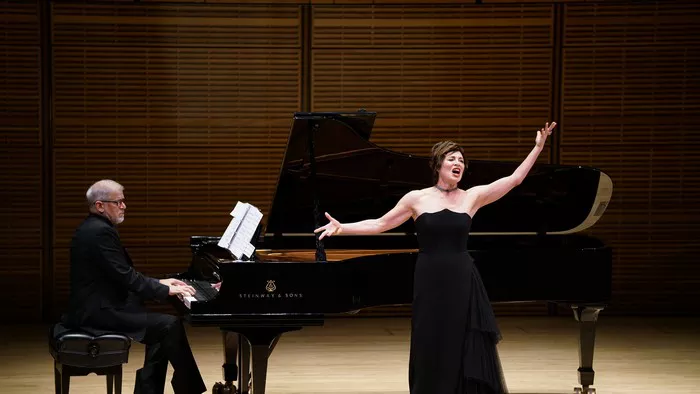Classical music, with its rich history and diverse forms, has the power to evoke a myriad of emotions. One facet that stands out prominently is its ability to convey drama and intensity. In this exploration, we delve into the essence of classical music, understanding its structure, and unraveling the secrets behind the most dramatic compositions that have left audiences captivated through the ages.
Understanding Classical Music
Classical music, a genre that spans centuries, encompasses a wide array of styles and periods. From the Baroque era with its intricate ornamentation to the Romantic period’s emotional expressiveness, classical music has undergone significant transformations. The genre is characterized by its adherence to structure, form, and instrumentation, creating a timeless aesthetic that has resonated through generations.
One of the defining features of classical music is its ability to communicate without words. Unlike many other forms of music, classical compositions often lack lyrics, relying solely on the interplay of instruments to convey complex emotions. This unique aspect allows listeners to interpret and experience the music in a deeply personal way.
Key Elements of Dramatic Classical Music
Dynamic Contrasts: One of the defining features of dramatic classical music is its use of extreme dynamic contrasts, ranging from whisper-quiet passages to thunderous crescendos. These sudden changes in volume add a sense of urgency and intensity to the music, keeping the listener engaged throughout the piece.
Expressive Melodies: Dramatic classical pieces often feature highly expressive melodies that convey a wide range of emotions. These melodies can be hauntingly beautiful, intensely passionate, or sorrowfully melancholic, drawing listeners into the emotional narrative of the music.
Complex Harmonies: Composers of dramatic music often employ complex harmonic progressions, using dissonance and resolution to create tension and release. These harmonic tensions contribute to the overall dramatic effect of the music, adding depth and richness to the listening experience.
Emotional Storytelling: At the heart of dramatic classical music is its ability to tell compelling stories without words. Through the use of musical motifs, themes, and development, composers craft narratives that unfold organically, eliciting a wide range of emotions from listeners.
Notable Composers of Dramatic Classical Music
Throughout history, numerous composers have left an indelible mark on the world of dramatic classical music. Here are some notable figures and their iconic works:
1. Ludwig van Beethoven (1770-1827): Beethoven’s symphonies, particularly the Fifth, Seventh, and Ninth, are renowned for their dramatic power and emotional depth. His opera “Fidelio” also stands as a testament to his mastery of dramatic storytelling through music.
2. Richard Wagner (1813-1883): Wagner’s operas, including “Tristan und Isolde,” “Der Ring des Nibelungen,” and “Parsifal,” revolutionized the genre with their epic scale, innovative use of leitmotifs, and intense emotional impact.
3. Pyotr Ilyich Tchaikovsky (1840-1893): Tchaikovsky’s symphonies, ballets (such as “Swan Lake” and “The Nutcracker”), and operas (notably “Eugene Onegin”) are revered for their melodic richness, orchestral brilliance, and profound emotional resonance.
4. Gustav Mahler (1860-1911): Mahler’s symphonies, particularly the Symphony No. 2 “Resurrection” and Symphony No. 5, delve into existential themes with sweeping orchestral gestures, intricate textures, and deeply expressive melodies.
5. Dmitri Shostakovich (1906-1975): Shostakovich’s symphonies and chamber works, such as the Symphony No. 5 and String Quartet No. 8, reflect the turmoil of 20th-century Soviet life, blending irony, tragedy, and defiance in a dramatic musical language.
Timeless Masterpieces of Dramatic Classical Music
1. Johann Sebastian Bach – “St. Matthew Passion” (1727): This monumental oratorio combines dramatic choruses, arias, and recitatives to narrate the Passion of Christ with profound emotional depth and spiritual insight.
2. Wolfgang Amadeus Mozart – “Don Giovanni” (1787): Mozart’s opera about the infamous seducer Don Juan is a masterwork of dramatic storytelling, blending comedy, tragedy, and moral ambiguity in its exploration of human desires and consequences.
3. Ludwig van Beethoven – Symphony No. 3 “Eroica” (1804): Beethoven’s “Eroica” Symphony broke new ground with its heroic themes, innovative structure, and bold emotional expression, marking a pivotal moment in the evolution of symphonic music.
4. Richard Wagner – “Tristan und Isolde” (1865): Wagner’s opera “Tristan und Isolde” is a pinnacle of romantic passion and existential longing, with its lush harmonies, transcendent love duets, and Wagnerian leitmotifs shaping the narrative arc.
5. Gustav Mahler – Symphony No. 6 “Tragic” (1906): Mahler’s Sixth Symphony delves into themes of fate, struggle, and loss, culminating in a devastatingly dramatic finale that leaves a lasting impact on listeners.
See Also: Italian Classical Music
Conclusion
Despite the passage of time and changing musical trends, dramatic classical music continues to resonate with audiences around the world. Its ability to convey profound emotions, tell compelling stories, and explore the depths of the human experience ensures its enduring appeal across generations.
In conclusion, the world of dramatic classical music is a vast and captivating realm, filled with masterpieces that transcend time and culture. From the Baroque intricacies of Bach to the modernist innovations of Shostakovich, each composer and work contributes to the rich tapestry of dramatic expression in classical music, leaving an indelible mark on the hearts and minds of listeners everywhere.

